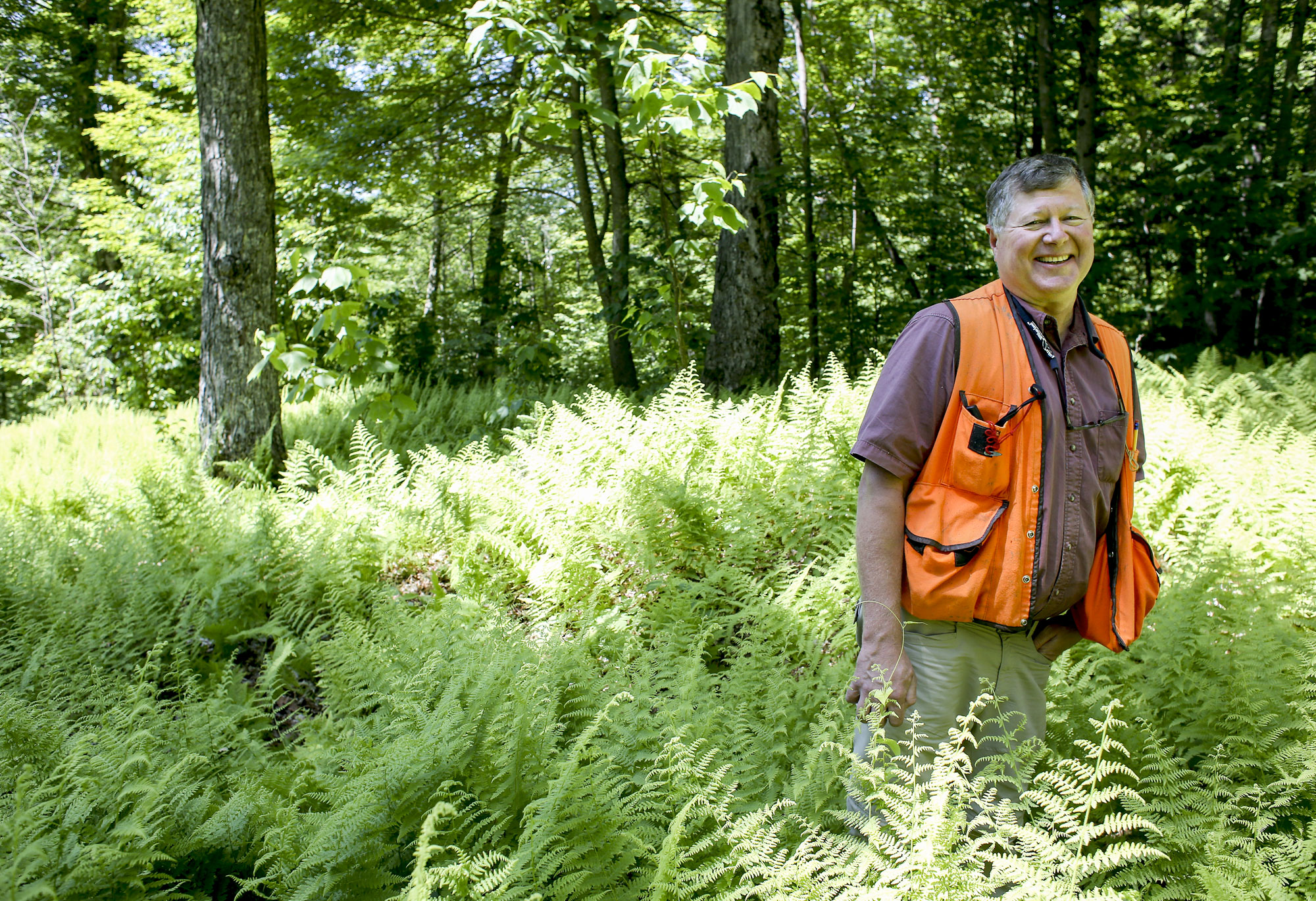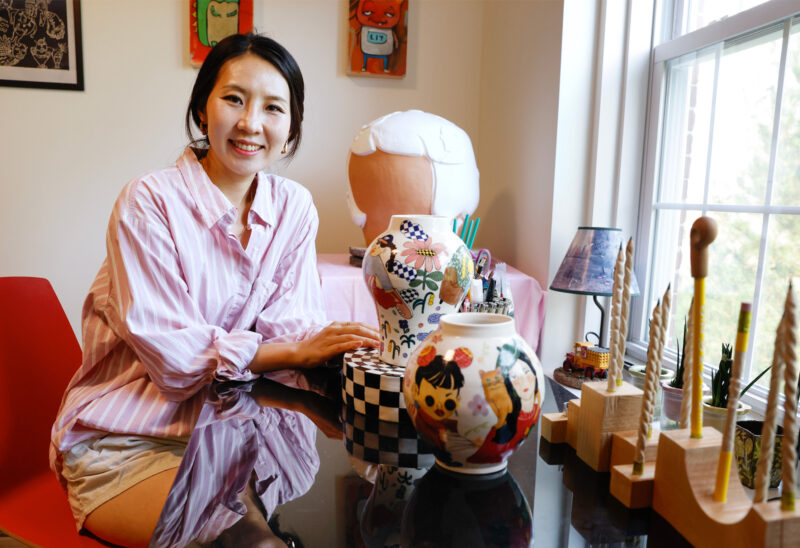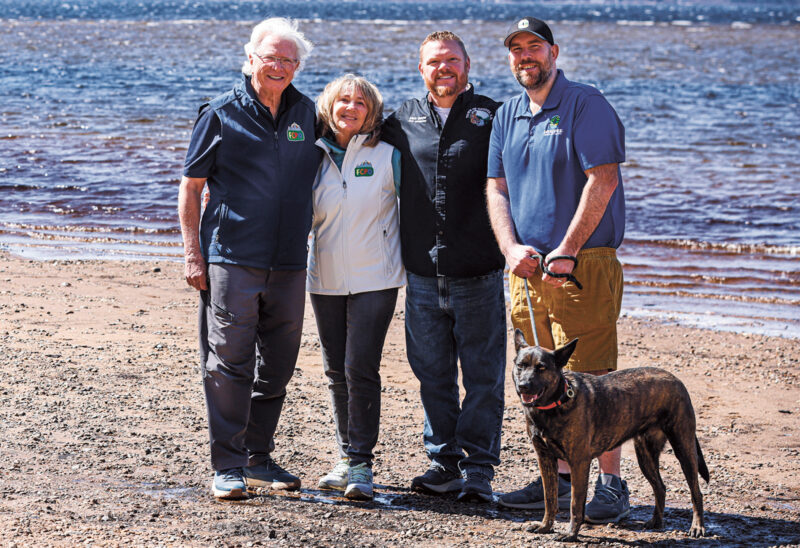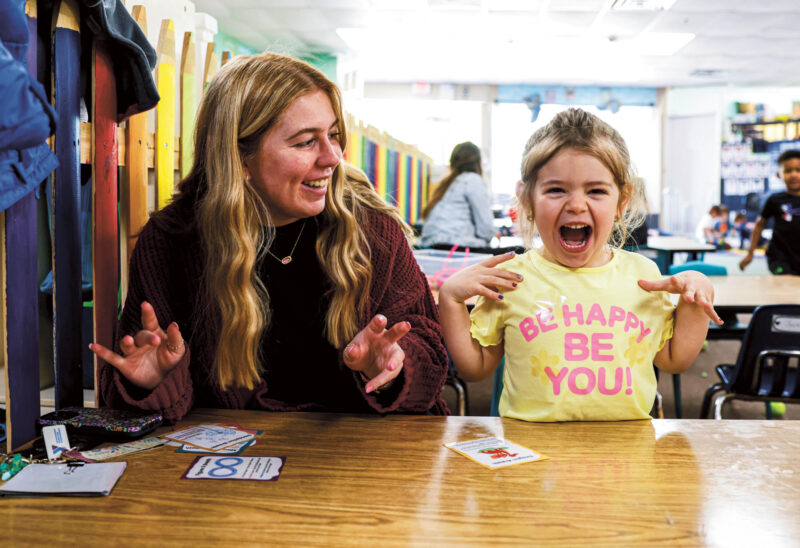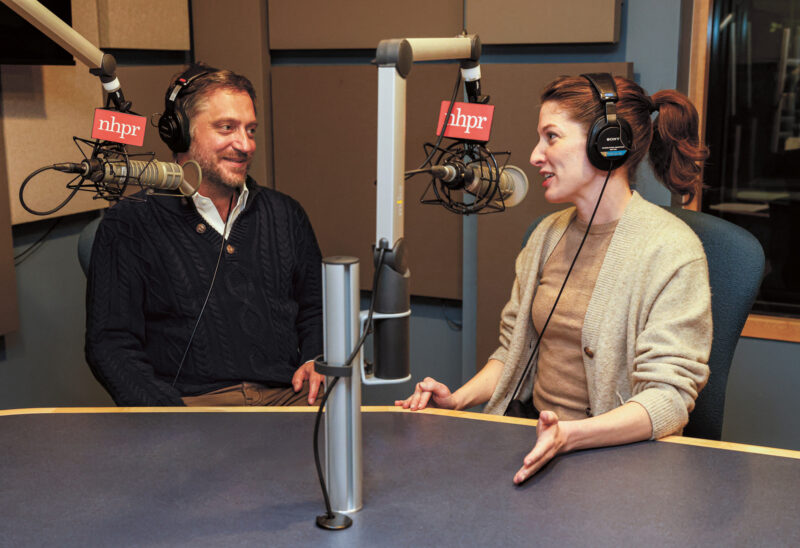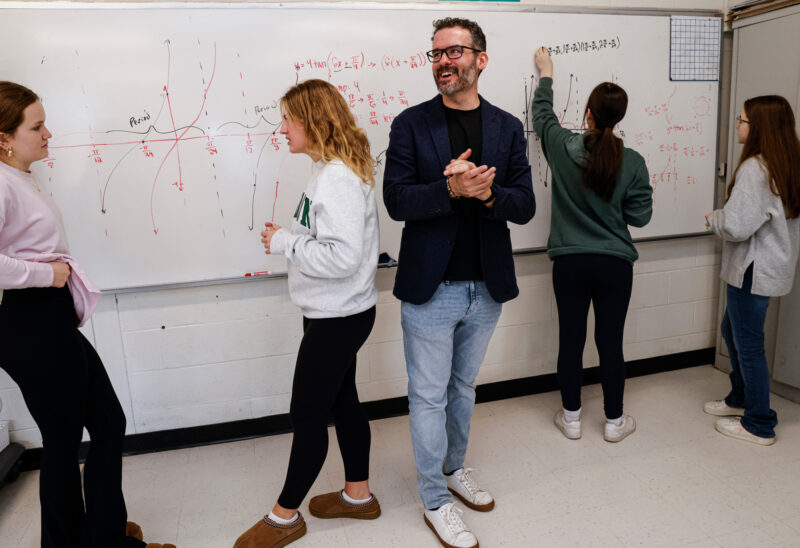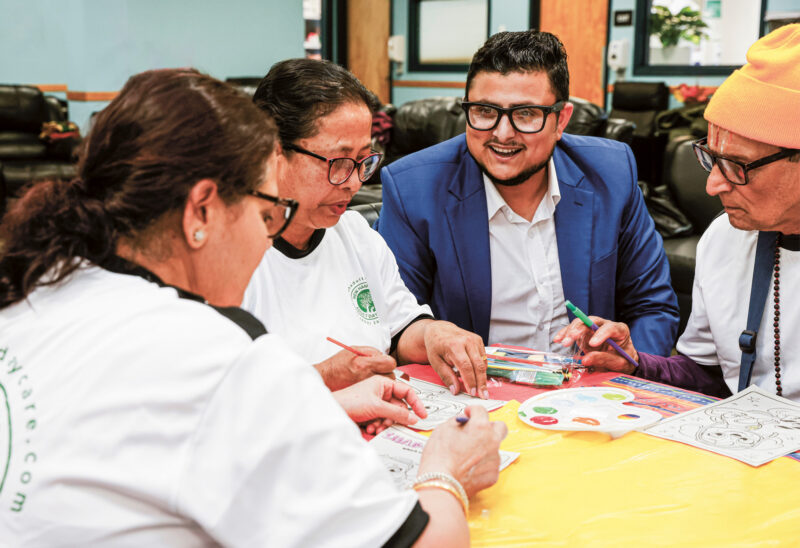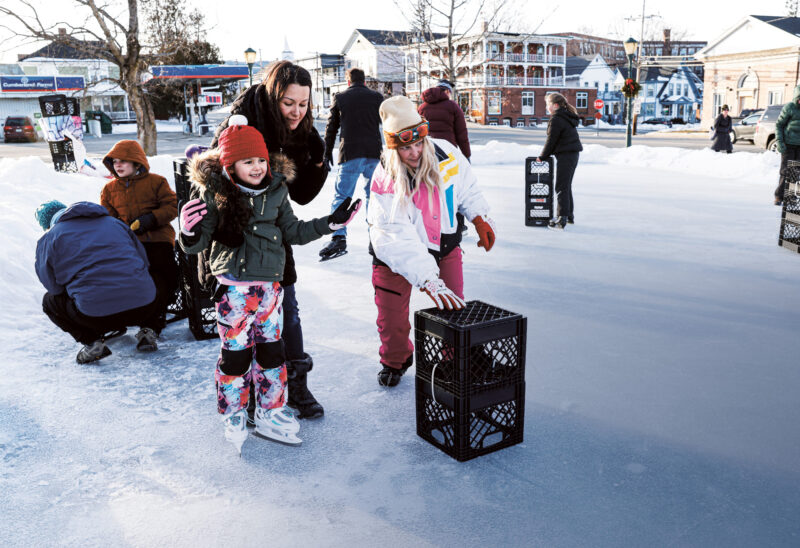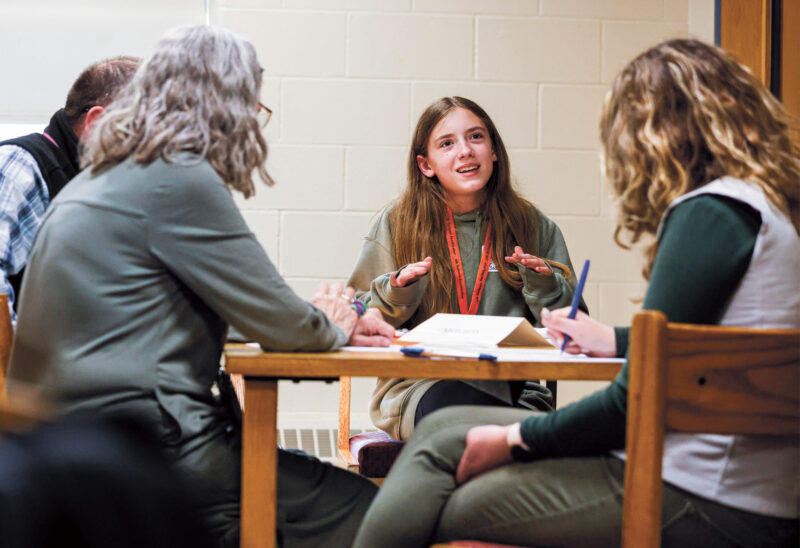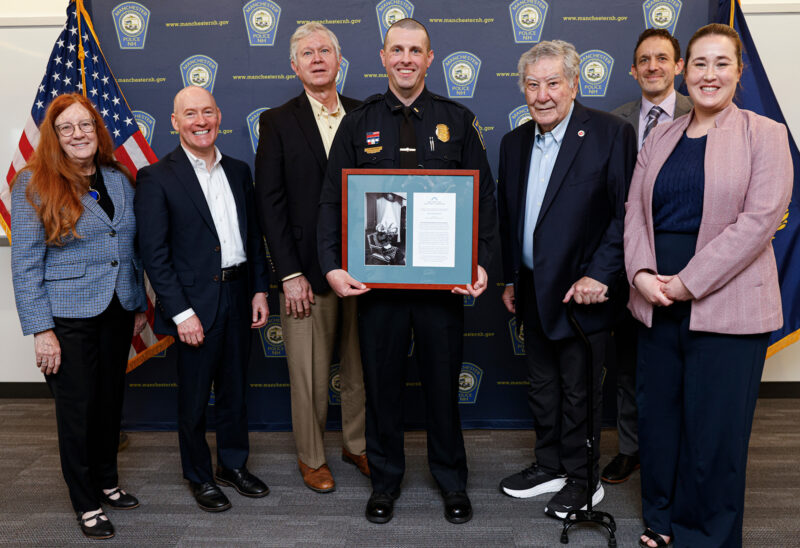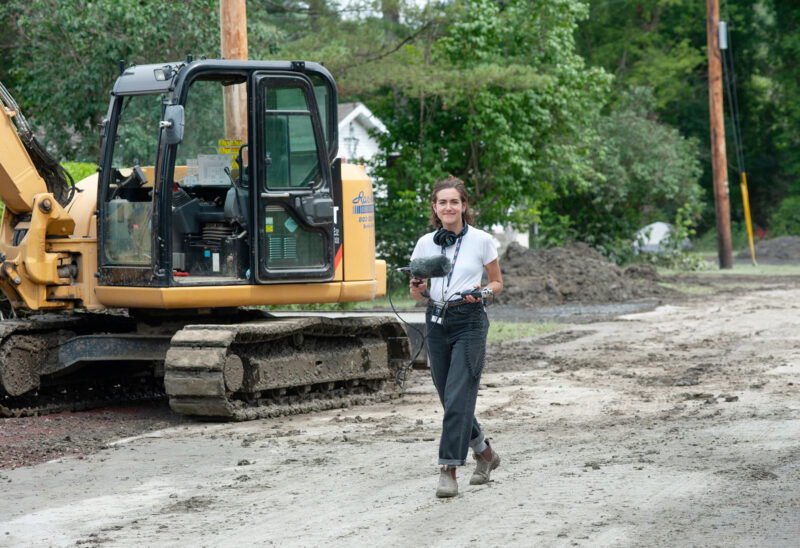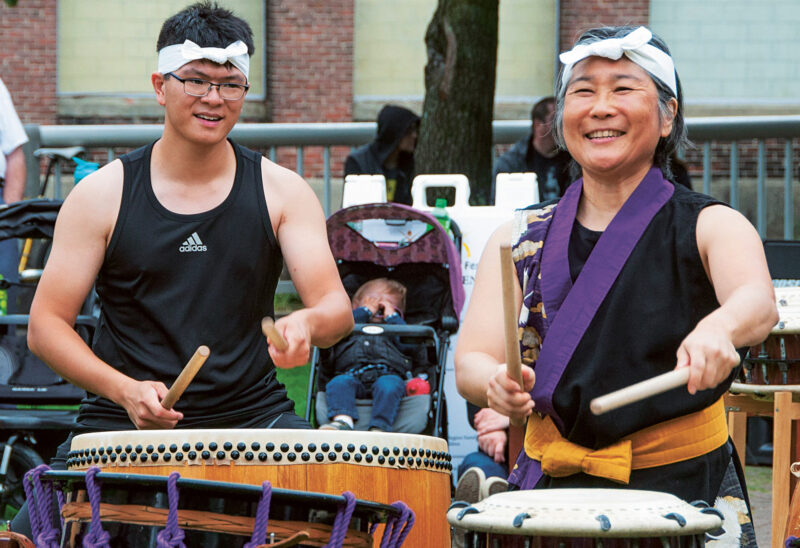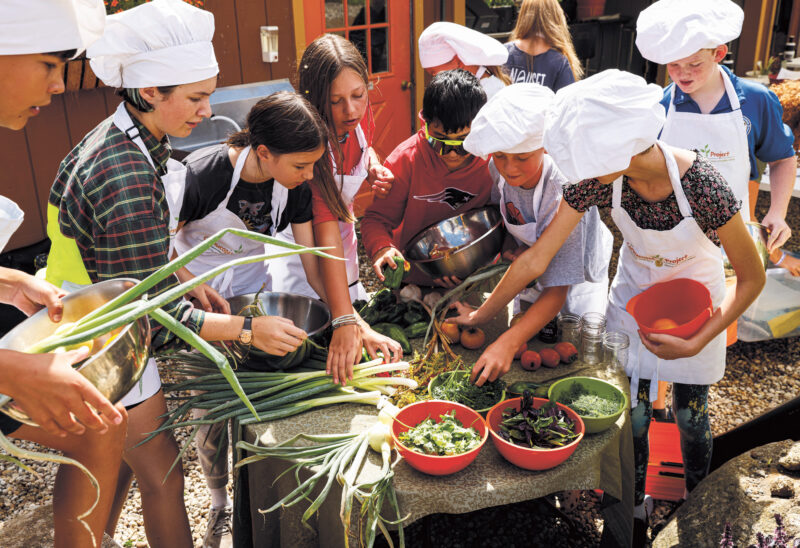Brendan Prusik is a forester with the UNH Cooperative Extension in Lancaster. He also works on community and economic development.
When he met someone at the Farm and Forest Expo in Manchester who was running a project to get more girls involved in engineering, he knew to put her in touch with Lori Langlois, from North Country Education Services in Gorham. And some North Country kids got to do some cool engineering.
When he’s got a question on a project and needs the ear of an IT director, he knows to call Allie White at Indian Stream Health Center in Colebrook. She steers him in the right direction.
And when he’s looking to connect one of the kids he helps as a CASA volunteer with positive outdoor and educational experiences, he knows to get in touch with Jim Cochran at the Enriched Learning Center in Berlin.
And a web of unlikely connections – forester to educators to IT director – means that North Country communities are improved.
“When I’m working on a project, my mind goes to somebody in my network,” Prusik said. ‘I know somebody who can…’”
The common denominator?
All of those people were in the inaugural class of the Neil and Louise Tillotson Fund’s Community Practitioners Network – a multi-year leadership program designed to enhance community and economic development in the North Country.
“CPN brings people together in a network so they can work together to change the community,” Prusik said. “And it’s a long-term investment, not a quick fix, which is good. Quick fixes don’t work.”
CPN helps people who do community and economic development learn and strengthen leadership skills and immerses them in best practices for bolstering communities and economies.
“They were teaching skills, tools – real stuff we can use on the ground,” Prusik said.
Participants attend multiple sessions and go on site visits both within and outside the North Country region. Participants apply to join the program, for which all costs are covered by the Tillotson Fund of the Charitable Foundation.
“Strong community leaders are absolutely critical for the long-term community and economic vitality of this region,” said Kirsten Scobie, director of the Tillotson Funds at the Charitable Foundation. “As industries and populations have shifted, new leaders are emerging to help make this region strong,” Scobie said. “We want to support them and connect them.”
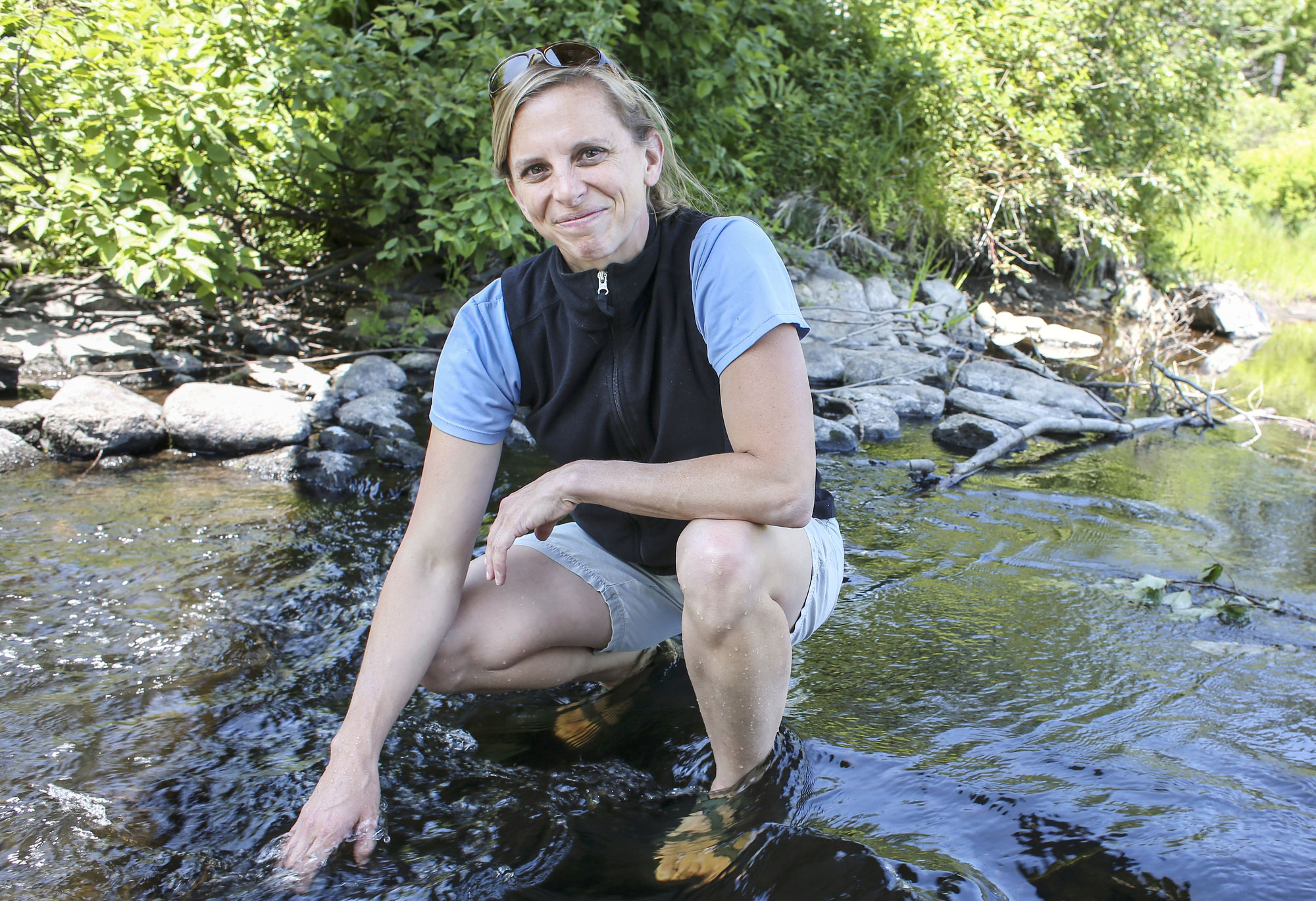
Phoebe Backler is the community outreach field coordinator for the Northern Forest Canoe Trail, a 740-mile inland paddling trail that stretches from New York through New Hampshire and into Maine. She was in the first CPN class.
“This was so immediately relevant to the work that I am doing,” she said. “To be able to apply that learning the day after was a really wonderful and useful thing.”
Sessions on adaptive leadership and facilitation strategies gave Backler tools she needed to design and run a successful session for dozens of diverse stakeholders discussing how to protect the Androscoggin River and capitalize on it as an economic engine for the region.
The outcome: consensus, and a plan to develop a “river code” of guidelines for using the river and to work with local chambers of commerce and promote recreational activities on the river.
Backler sees leadership in a way that may be different from the way her grandmother’s generation saw it.
Leadership, as she sees it, is “understanding how to work within a network, and looking to people for their individual expertise and skills…the hierarchal, ‘old-boys’-network’ concept of what a leader is, I don’t think is going to work up where we are. We have a disbursed enough population and we are very rural in nature, so that we really need to develop a sense of ‘we are in this together’ and we need to be able to rely on one another to move toward the economic and social and cultural future that we want…To try to encourage people to see themselves as an integral part of a larger whole is really important.”
“I was completely unprepared for the depth of the experience,” Backler said of participating in CPN. “I can’t overstate how powerful and effective it was – even more so than much of my undergraduate experience on an intellectual basis, more fulfilling.”
And all participants create and implement projects of their choosing in their communities. Some are working on a farmers’ cooperative for the Berlin/Gorham area.
Backler and Prusik and other members of that first CPN class have launched North of the 44th – which they call “a movement designed to shift the way we think about our region, to celebrate what is right, and to build from our strengths.” They are gathering the experiences and stories of local residents – sort of a StoryCorps for the North Country. A city manager talks about alternative energy projects, a high school soccer player talks about the pride of place she felt in being part of a dominant soccer team, kids talk about watching the stars and being immersed in the region’s natural wonders.
Stories, Backler said, that “give a sense of thrill for our area.” The point is not to deny that some of the difficult trends facing the North Country are real, but to “reclaim our place by trying to shine a spotlight on the remarkable things going on up here.”
Any work that strives to solve a problem or make a community stronger is driven by one thing: hope. The second class of the Community Practitioners Network will start in the fall.
Backler said she came away from the CPN experience “feeling truly optimistic about what can happen up here.”
Update, 2/1/2018: the second Community Practitioners Network class will graduate in 2018, and applications will open in 2019 for a third class.

